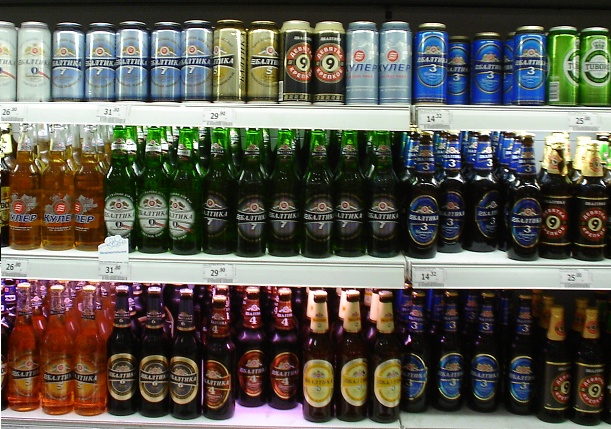For a long time, we've known that people who abuse alcohol tend to be very bad at making decisions and particularly gambling-type decisions weighing up options: "Should I take the gamble and go for a big possible win or should I take a sure fire smaller win?" Research published in the Journal PNAS this week looks at the question of alcohol and alcohol abuse.
 The big question is, do people who are prone to drink too much also prone to make bad decisions? Or does the alcohol make them more prone to make bad decisions?
The big question is, do people who are prone to drink too much also prone to make bad decisions? Or does the alcohol make them more prone to make bad decisions?
A group of researchers at the University of Washington in Seattle, Nicholas Nasrallah and his colleagues, decided to set out to answer that question.
This study used rats because, obviously, it would be rather unethical to try and use the human teenagers they're interested in trying to understand. But they wanted to assess the effect of alcohol on the developing brain and rats are a very good model for how human brains make decisions. The only slight snag is that, unlike teenagers, you can't get teenage rats to want to drink too much so they found a way around the problem. They developed the rodent equivalent of vodka jelly which these rats will imbibe and this led to a sustained high intake of alcohol over a period of time in these rats.
After they have given these adolescent rats the alcohol-impregnated gel for a period of time they gave them a gambling task to do. So the rodents were made slightly hungry so they want to participate in the research, which involves giving them food rewards and they offer them a choice. The first choice is they can have a small outcome, two food pellets, but they'll definitely get it. Alternatively, they could have a high-risk gamble and they may get four food pellets. But the more times that they do the trial, the less and less likely they are to get those four food pellets.
Now if you do this with normal animals that have not been exposed to alcohol, they quite quickly cotton on to the fact that they might do quite well to start with, but later, it's much better to take the sure fire win situation because you're going to get something - you're not going to get left with nothing.
But these rats that have been exposed to alcohol, consistently, time after time, made the wrong decision. They couldn't learn that if they kept taking the gamble, it was going to have a bad outcome and they kept going for the high-risk outcome and in the end became croppers as a result. Now this isn't just because they weren't drinking alcohol at the time, this was in some cases up to three months after the exposure to the alcohol had stopped.
The researchers suggest that the alcohol is in some way affecting how the teenage brain is wiring itself up. Maybe it's triggering a condition called perseveration, which is where the brain struggles to size up the scale of the problem and then change its behaviour accordingly. It's almost like the brain gets locked into one path of action and finds it very difficult to add additional variables or parameters so that it changes its outcome. But it's very informative because it says to us, look - if we're not careful with young humans, if they take sustained exposure to alcohol as many are doing, then it could be that they are changing the way that their brain works. And they're going to be cruising for a cognitive bruising later because this will lead them to, maybe make those decisions when they're older.
It's important not to confuse this with a social drink of "watered down wine" with the family at dinner on a Sunday because that kind of alcohol exposure is almost certainly not going to have such an effect. The animals in the study where being exposed to what would equate to quite sustained heavy drinking: the kind that you see in nightclubs that you have to actually try quite hard to achieve.
- Previous The Mighty Eel Migration
- Next The robot doctors are coming!










Comments
Add a comment